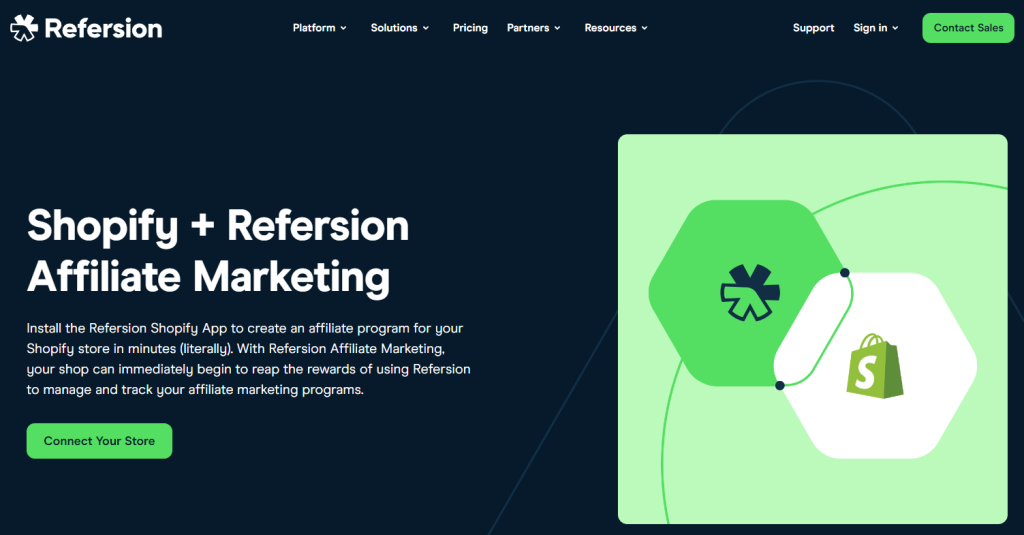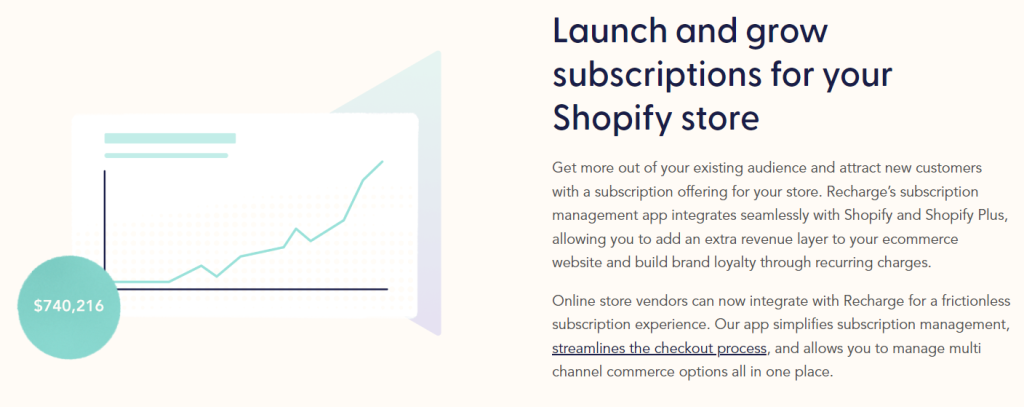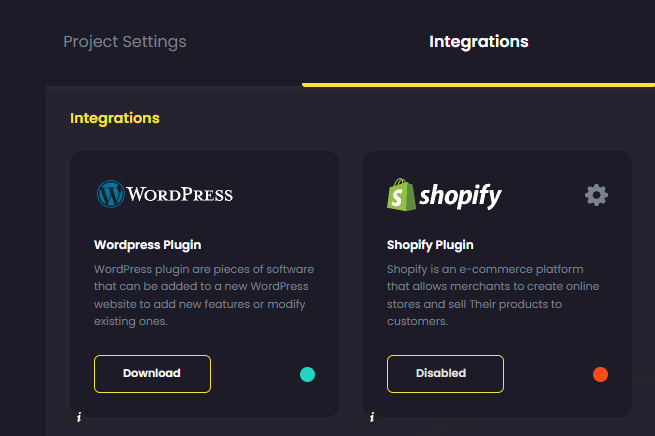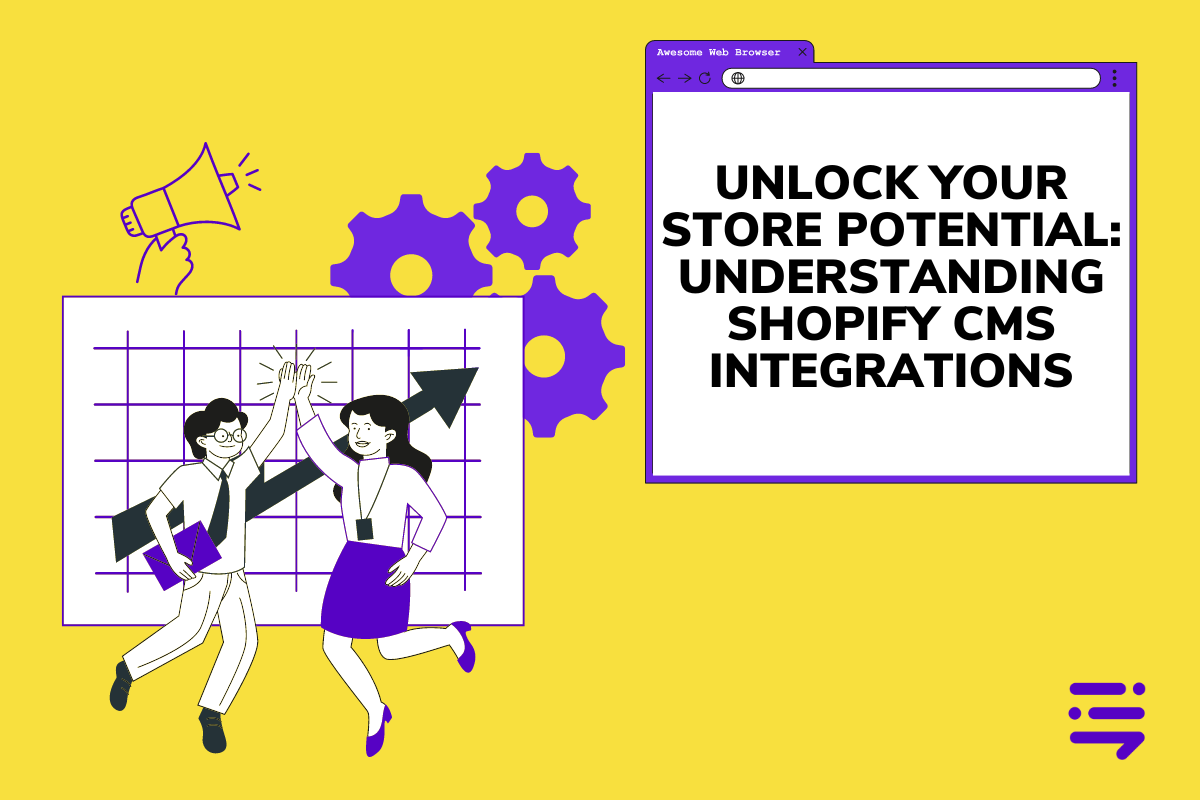Shopify is currently the largest e-commerce platform in the United States with a 29% market share. Close to 3 million online businesses use it to power their stores.
Shopify is renowned for its wide range of templates and themes, as well as its user-friendly navigation. These sought-after features make it one of the top content management systems for online stores today.
That said, is Shopify enough for your needs?
Straight out of the box, it might not be. However, tons of integrations exist that might make it your perfect customized solution.
If you want to streamline your e-commerce experience, this blog post will explain the features of Shopify’s CMS and the possibilities for integrations to increase its power and potential to meet your business needs.
Let’s dive in.
Table of Contents:
- Shopify CMS: Good on Its Own, Better with Integrations
- Understanding Shopify CMS Integrations
- 10 Top-Rated Shopify Integrations to Grow Your Business
- FAQs – Understanding Shopify CMS Integration
- Conclusion
Shopify CMS: Good on Its Own, Better with Integrations
Shopify is an excellent platform for ecommerce businesses that want to quickly and easily set up their online store. It offers a user-friendly interface with drag-and-drop functionality that allows users to customize their websites without any coding knowledge.
Before we talk about the possibilities for integrations with Shopify, let’s lay out its good features and its limitations so we know what we’re working with.
The Good
Extensive app store. One of the best things about Shopify is its extensive app store. With over 6,000 apps available in various categories such as marketing, sales channels, shipping and fulfillment, social media integration, and more, it’s easy to find what you need to improve your business operations.
Reliable hosting. Another advantage of using Shopify as your eCommerce platform is its reliable hosting service. Since it hosts all websites on its own servers rather than relying on third-party hosting providers like other platforms do, this ensures faster page load times which can positively impact SEO rankings.
Headless CMS capabilities. Shopify Plus’s built-in CMS is a game-changer for those who prefer headless online shops. It separates your website from the backend system, giving developers more freedom to craft unique designs without compromising on performance speed or security.
But while Shopify Plus offers some great features, it also presents some limitations when dealing with large amounts of content.
The Limitations of Shopify
Limited customization. While Shopify may be great for small or medium-sized businesses looking for a quick start-up solution, larger companies or those with complex requirements may find limitations in terms of customization options. For instance, if you’re looking to build a content-heavy site with multiple language support or advanced blogging capabilities, then Shopify might not be suitable due to limited features compared to other robust CMSs out there.
Furthermore, Shopify doesn’t provide a lot of control over the backend code, which can be frustrating for developers who want to make more advanced customizations. This means that if you need something beyond what’s available in their app store or theme editor, then hiring an expert developer may become necessary.
Add-on costs. Moreover, while setting up a shop on Shopify can be relatively affordable at first glance, additional costs associated with plugins, apps, and subscription fees (which could add up fast) might quickly blow your budget.
Lack of flexibility. The biggest downside of using Shopify as your primary CMS is the lack of flexibility when it comes to managing large amounts of dynamic content. For instance, if you want to make customizations to blogs or documentation pages, you’ll need more than basic HTML/CSS knowledge.
While Shopify CMS might be great for ecommerce businesses looking to get started quickly and easily, larger companies or those with complex needs should consider whether integrations will help Shopify rise to the level they need.

Screenshot from Oberlo
Understanding Shopify CMS Integrations
While Shopify has a lot of features built-in to help run your store, it’s not always enough for every merchant. This is where integrations come into play.
What are Shopify Integrations?
Integration is the process of connecting two or more systems together so they can work seamlessly with each other. In this case, we’re talking about integrating third-party apps and services with your Shopify store.
There are many different types of integrations available for Shopify stores such as payment gateways, shipping carriers, marketing tools, analytics platforms, and much more. These integrations allow merchants to add extra functionality to their stores without having to build everything from scratch.

Shopify integration with Agile CRM
Why Should You Use Integrations in Your Store?
- Better customer experience: Integrating with third-party apps can improve customer experience by adding features like live chat support or personalized product recommendations based on previous purchases.
- Increased efficiency: By automating certain tasks through integrations (like order fulfillment), merchants can save time and focus on growing their business instead.
- Growth opportunities: With access to additional tools and resources via these integrations (such as SEO), businesses have greater opportunities for growth than those who rely solely on native functionalities provided by the Shopify platform alone.
The number of possible combinations when it comes to integrating third-party applications into a Shopify site is virtually endless. Choosing integrations ultimately depends on what goals you wish to achieve.
Integrations are an essential part of running a successful Shopify store. They allow you to add extra functionality, improve customer experience, and increase efficiency.
10 Top-Rated Shopify Integrations to Grow Your Business
If you are running an online store on the Shopify CMS, integrating it with other tools can help you streamline your business operations and grow sales.
Here are 10 top-rated Shopify integrations that can take your e-commerce platform to the next level.
1. Klaviyo
Klaviyo is a powerful email marketing platform that integrates seamlessly with Shopify. It helps you create personalized email campaigns, segment your audience, automate email sequences, and track sales and customer behavior.

Screenshot: Klaviyo
2. Yotpo
Yotpo is a customer review and rating platform. By integrating it with Shopify, you can collect and display customer reviews, ratings, and user-generated content to build trust and social proof.
3. Bold Upsell
Upselling and cross-selling are effective techniques for increasing average order value. Bold Upsell allows you to create targeted upsell and cross-sell offers based on customer behavior and purchase history.
4. Refersion
If you run an affiliate program, Refersion is a popular integration. It helps you track and manage affiliate sales, set commission rates, and provide affiliates with promotional tools.

Screenshot: Refersion
5. Zendesk
Customer support is crucial for any business. By integrating Zendesk with Shopify, you can provide seamless support to your customers by managing tickets, live chats, and customer interactions in one place.
6. LoyaltyLion
LoyaltyLion is a customer loyalty and rewards program that integrates with Shopify. It enables you to create and manage a loyalty program, offer personalized rewards, and encourage repeat purchases.
7. ReCharge
If you sell subscription-based products, ReCharge is an essential integration. It allows you to set up and manage recurring billing, customize subscription options, and offer subscription discounts.

Screenshot: ReCharge
8. BrandWell
BrandWell is an AI-powered publishing tool that helps you research and write long-form, SEO-focused content for your Shopify store. The app automatically syncs with your Shopify account so you can publish blog posts straight from the Content at Scale dashboard to your Shopify site.

9. Google Analytics
Understanding your website’s performance and customer behavior is vital. By integrating Google Analytics with Shopify, you can track website traffic, sales, conversion rates, and other key metrics to make data-driven decisions.
These are just a few examples of how integrating third-party apps could enhance your Shopify store’s functionality, automate tasks, improve customer experience, and provide valuable insights to help you grow your business effectively.
FAQs – Understanding Shopify CMS Integration
What CMS is used by Shopify?
Shopify uses its own CMS, which is user-friendly and allows merchants to manage their online stores effectively.
Is Shopify a website builder or CMS?
Shopify is both a website builder and a CMS, offering customizable templates and comprehensive tools for managing digital content.
Is Shopify Plus a CMS?
Yes, Shopify Plus includes advanced functionalities designed for high-volume merchants and large businesses.
What role does a CMS play in the creation of a website?
A robust CMS like Shopify simplifies tasks such as organizing site structure, managing SEO settings, updating content regularly, and ensuring mobile responsiveness.
Understanding Shopify CMS Integrations Helps You Get the Most Out of the Platform
After exploring Shopify’s CMS and its features, it is safe to say that this e-commerce platform is a great choice for entrepreneurs looking to start their own online store. With its user-friendly interface, robust content management system, and easy integration with third-party apps, Shopify makes it simple for anyone to set up an online business.
One of the most significant advantages of using Shopify as your e-commerce platform is its all-in-one solution. You don’t need any coding or design skills to create a professional-looking website because everything you need is included in one place.
Furthermore, with over 6,000 apps available on the Shopify App Store, users can customize their stores according to their specific needs easily. Whether you want more advanced marketing tools or additional payment gateways, understanding Shopify CMS integrations will help you get the most out of the e-commerce platform.




